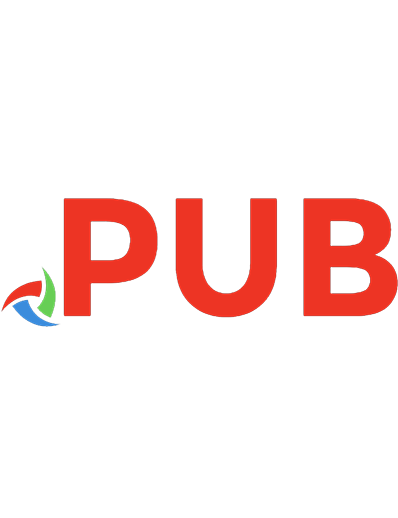Have you ever found yourself pondering over questions like “What should I know about jobs?” or “How can I make an informed career decision?” If you are grappling with these uncertainties, worry not! This article is here to provide you with all the essential information you need to navigate the world of work with confidence and understanding. Whether you are a fresh graduate about to embark on your professional journey or an individual looking to switch careers, we’ve got you covered. With a friendly and informative tone, we aim to shed light on the various aspects of jobs, including finding the right fit, understanding job requirements, and even offering tips and tricks to nail that dream job interview. So, grab a cup of coffee and get ready to embark on a journey filled with knowledge that will empower you to carve a successful career path!
Table of Contents
- Different Types of Jobs and Their requirements
- Skills and Qualifications Employers Look for in Job Applicants
- Important Factors to Consider When Choosing a Job
- Landing a Job: Tips and Tricks for a Successful Job Search
- Q&A
- Wrapping Up

Different Types of Jobs and Their requirements
When it comes to choosing a career path, the options seem endless. Here is a glimpse into some of the different types of jobs and their specific requirements:
- Software Developer: A career in software development requires a strong understanding of programming languages like Java, Python, or C++. Additionally, a bachelor’s degree in computer science or a related field is often preferred. Attention to detail, problem-solving skills, and creativity are also crucial for success in this rapidly growing field.
- Registered Nurse: If you have a passion for healthcare and helping others, becoming a registered nurse might be the perfect fit. To work as a nurse, one must earn a nursing degree, pass the NCLEX-RN exam, and obtain a state license. Compassion, attention to detail, strong communication skills, and the ability to handle stressful situations are essential for excelling in this demanding yet rewarding profession.
- Marketing Manager: In the dynamic world of marketing, a marketing manager plays a key role in strategizing and implementing effective campaigns. This position typically requires a bachelor’s degree in marketing or a related field, and several years of experience in marketing roles. Strong analytical skills, excellent communication, and a creative mindset are essential qualities for success in this competitive field.
- Electrician: Skilled electricians are in high demand in industries such as construction, manufacturing, and maintenance. To become an electrician, one must complete an apprenticeship program, typically lasting four to five years, and obtain a license. Attention to detail, technical knowledge, problem-solving abilities, and physical stamina are essential skills for this hands-on profession.
These are just a few examples of the diverse range of jobs out there, each with their unique requirements. It’s important to explore your interests and skills to find the right fit for you. Remember, no matter which path you choose, dedication, continuous learning, and a positive attitude are key ingredients for a successful career!

Skills and Qualifications Employers Look for in Job Applicants
When it comes to hiring the right candidate, employers consider a variety of skills and qualifications that help them assess an applicant’s suitability for a role. While specific requirements may vary depending on the industry and job position, there are certain universal skills and qualifications that most employers value. These sought-after attributes not only showcase your capabilities but also demonstrate your potential to succeed in the workplace.
- Effective Communication: The ability to express ideas clearly, listen actively, and convey information effectively is highly valued in every job. Strong communication skills enable you to collaborate with colleagues, resolve conflicts, and provide exceptional customer service.
- Leadership: Employers appreciate candidates who can take charge, motivate their team, and guide others towards achieving common goals. Leadership skills demonstrate your ability to make decisions, solve problems, and inspire others, making you an asset in any work environment.
- Adaptability: In today’s rapidly changing world, being adaptable is essential. Employers look for candidates who can readily adjust to new environments, learn new technologies, and embrace change. Demonstrating flexibility and a willingness to evolve ensures that you can thrive in dynamic work settings.
In addition to these essential skills, employers also consider specific qualifications that align with the job requirements. These qualifications may include:
- Educational Background: Employers often seek candidates who possess the necessary educational qualifications and degrees relevant to the position. Graduates with specialized degrees or certifications in the field are highly favored.
- Work Experience: Previous work experience, especially in a similar role or industry, gives employers confidence in your ability to perform the job effectively. Showcase your relevant experience and highlight specific achievements to stand out from other applicants.
- Technical Proficiency: Depending on the job, technical skills and proficiency with specific software or tools may be crucial. Be sure to mention your familiarity with relevant technical applications, which shows your ability to handle job-related tasks efficiently.
In summary, possessing strong communication skills, leadership qualities, adaptability, along with relevant educational background, work experience, and technical proficiency, can significantly enhance your chances of impressing employers and securing your dream job.

Important Factors to Consider When Choosing a Job
When it comes to choosing a job, there are several important factors to consider that can greatly impact your overall satisfaction and success. These factors go beyond just the salary and the job title, encompassing key elements that can contribute to a positive work-life balance and long-term career growth. Here are a few things to keep in mind:
- Company culture: Assess the company’s values, mission, and work environment. Look for a culture that aligns with your own beliefs and fosters collaboration, growth, and diversity. A welcoming and supportive workplace can significantly impact your happiness and job satisfaction.
- Opportunities for growth: Consider the potential for advancement and professional development within the organization. Look for companies that offer training programs, mentorship opportunities, and chances to take on new challenges. Continuing to learn and grow in your career can make your job more fulfilling.
- Work-life balance: Evaluate the company’s policies regarding work hours, flexibility, and the ability to work remotely. A healthy work-life balance is crucial for your overall well-being and allows you to maintain a fulfilling personal life alongside your professional responsibilities.
Additionally, it is essential to consider the specific role and its fit with your skills, interests, and long-term goals. Reflect on whether the job allows you to utilize your strengths and offers meaningful work that aligns with your passions. Consider the location, commute time, and any potential relocation. By carefully considering these important factors, you can make an informed decision and choose a job that offers not only financial stability but also personal fulfillment and growth opportunities.

Landing a Job: Tips and Tricks for a Successful Job Search
Looking for a new job can be both exciting and challenging. Whether you’re a recent graduate or seeking a career change, these tips and tricks will help you navigate the job market with ease and increase your chances of landing the perfect job.
1. Craft an impressive resume: Your resume is your first opportunity to make a great impression on potential employers. Tailor your resume to highlight your relevant skills and experiences that match the job description. Use bullet points to make it easy to read and keep it concise and well-organized.
2. Network, network, network: Building professional connections is crucial in today’s job market. Attend industry events, join professional organizations, and reach out to friends and former colleagues to let them know you’re on the lookout for new opportunities. Networking can lead to job leads, recommendations, and valuable insights.
3. Utilize online job platforms: Take advantage of popular job search websites and platforms. Create profiles on LinkedIn, Indeed, or other relevant websites to increase your visibility to potential employers. Upload an updated resume and set up job alerts to receive notifications about new opportunities.
4. Prepare for interviews: Research the company and the job role before every interview. Practice common interview questions and brainstorm examples of your past accomplishments and how they relate to the job requirements. Dress professionally, arrive on time, and bring multiple copies of your resume and any other necessary documents.
5. Follow up: After an interview, send a personalized thank-you email or note to express your appreciation for the opportunity and reiterate your interest in the position. Following up shows your professionalism and can set you apart from other candidates.
6. Stay positive and persistent: Job searching can be a lengthy process, and rejection may be inevitable. Stay motivated by celebrating small victories along the way. Don’t be discouraged if you face setbacks; instead, learn from them and keep pushing forward. Your determination will pay off!
Concluding Remarks
In conclusion, now you have an array of essential information that will help you navigate the world of jobs with ease. Remember, finding the right job is not just about the paycheck but also about personal fulfillment and growth. Don’t hesitate to explore various career paths, update your skills, and network with professionals in your field. Stay positive and persistent, understanding that it might take time and effort to find your dream job. However, with the knowledge you have gained from this article, you’re well-equipped to make informed decisions and embark on a successful career journey. Best of luck on your future endeavors, and may you find fulfillment and happiness in your professional life!
















